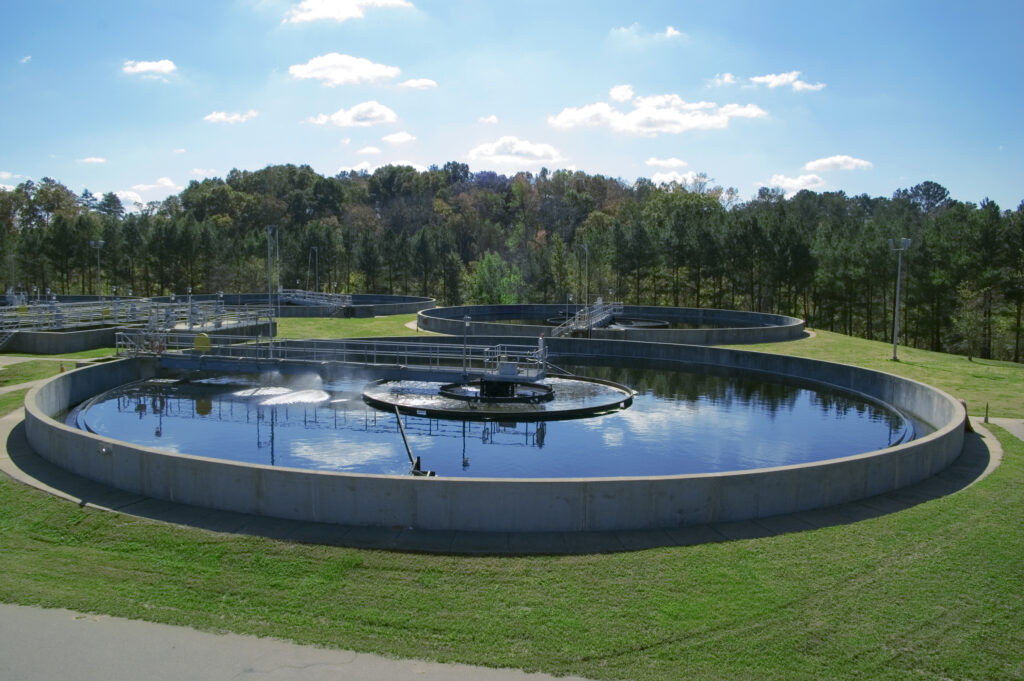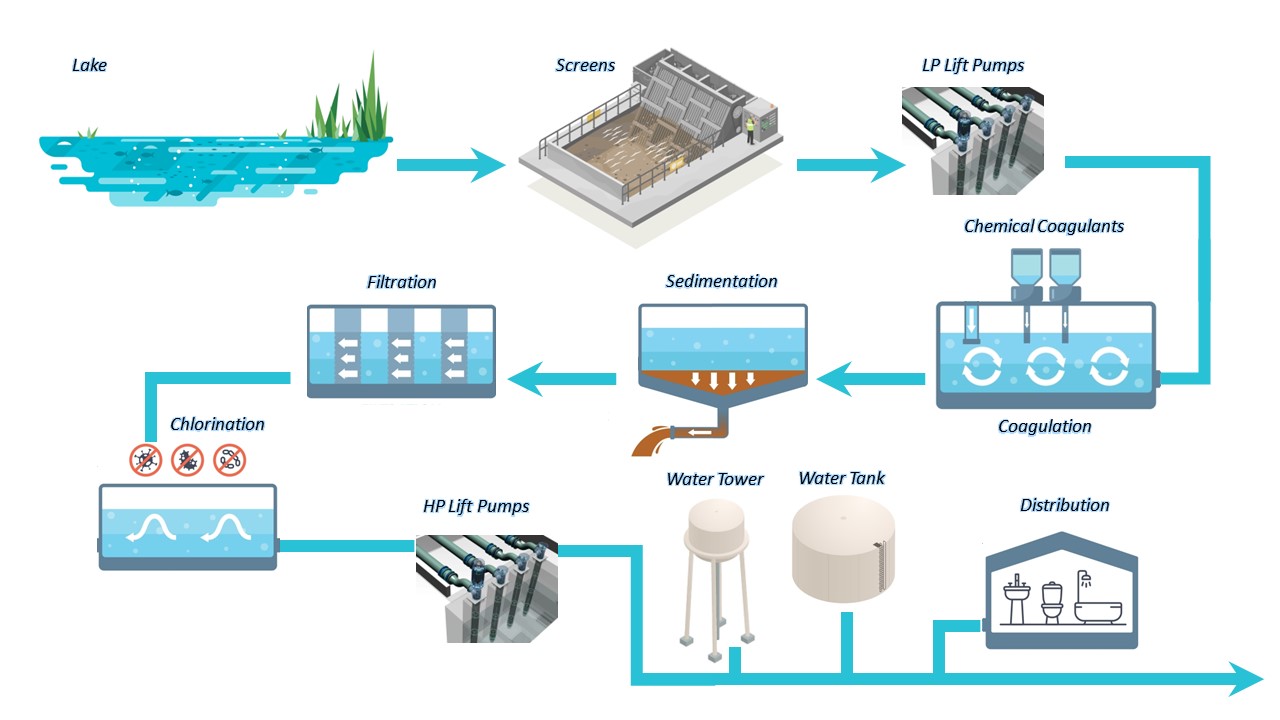Checking Out Water Technology Startups: How They Transform Sustainable Solutions
Water Technology start-ups are becoming important players in the quest for lasting options to international water concerns. These business leverage innovative technologies to boost water performance and administration. Their contributions resolve pressing challenges such as scarcity and contamination. Nonetheless, regardless of their capacity, they encounter different obstacles that can affect their success. Comprehending these dynamics loses light on the future of water sustainability and the duty these startups may play fit it.
The Relevance of Water Technology in Today's Globe
As global water deficiency intensifies, the importance of water Technology becomes significantly obvious. Water Technology plays a vital role in resolving the obstacles presented by increasing and lessening freshwater sources need. It encompasses a wide series of innovations, including innovative filtering systems, wastewater therapy innovations, and smart watering solutions. These innovations not only boost the effectiveness of water usage however additionally promote lasting practices across different industries, consisting of farming, sector, and urban growth.
In addition, the significance of water Technology prolongs past source monitoring. It cultivates strength versus climate change impacts, such as floodings and dry spells, by giving flexible remedies for water preservation and management. Additionally, it supports public health and wellness by making certain accessibility to tidy and secure alcohol consumption water. As the world deals with expanding water-related obstacles, the assimilation of sophisticated water technologies is important for fostering lasting development and securing water schedule for future generations.
Cutting-edge Solutions From Water Technology Startups
While standard techniques to water administration have actually served their function, a new age of water tech start-ups is changing the industry with ingenious options (Water Technology Startups). These firms utilize sophisticated modern technologies to resolve pushing water concerns, such as deficiency, contamination, and inefficient distribution. Numerous startups utilize expert system and equipment discovering to enhance water usage and forecast demand, resulting in even more sustainable techniques
In addition, several companies concentrate on developing innovative filtering systems that get rid of contaminants and make water safe for intake. Others check out decentralized water treatment technologies, allowing areas to handle their water sources much more effectively. Moreover, some start-ups are pioneering smart irrigation remedies that lessen water waste in agriculture, advertising ecological conservation.
Instance Studies: Successful Water Technology Startups
Many water Technology start-ups have become leaders in resolving international water difficulties via cutting-edge techniques. One remarkable instance is Xylem, which concentrates on water analytics and wise framework to optimize water usage and decrease waste. Their remedies have actually been executed in numerous towns, demonstrating substantial improvements in water management effectiveness.
An additional effective startup, Absolutely no Mass Water, has established solar-powered hydropanels that draw out water vapor from the air, offering sustainable drinking water in arid regions. Water Technology Startups. This Technology has been deployed in several nations, guaranteeing areas have access to tidy water
Last But Not Least, AquaVenture Holdings runs a varied profile of water-as-a-service remedies, resolving water deficiency via desalination and wastewater therapy. Their tasks have actually verified crucial in regions encountering extreme water scarcities, showcasing the potential of innovative water technologies to create lasting, favorable influences. These study highlight the transformative potential of start-ups in the water Technology market.
The Function of Smart Technology in Water Administration
Smart Technology plays a crucial duty in contemporary water administration by leveraging IoT applications to enhance resource usage. Information analytics improves effectiveness by offering actionable understandings, while remote monitoring solutions make it possible for real-time oversight of water supply. With each other, these developments transform just how water is handled, promoting sustainability and operational efficiency.
IoT Applications in Water
As water scarcity and monitoring difficulties heighten worldwide, the assimilation of Web of Points (IoT) applications has actually become a pivotal solution in enhancing water sources. IoT Technology facilitates real-time tracking and evaluation of water supply, making it possible for much more reliable usage and monitoring. Sensing units deployed in numerous water facilities can track high quality, flow prices, and leakage, offering useful information to stakeholders. This information empowers customers and utilities to make enlightened choices, reducing waste and enhancing conservation efforts. Furthermore, clever watering systems utilize IoT to maximize water delivery for agriculture, guaranteeing that plants receive the best quantity of water at the correct time. Overall, IoT applications are transforming standard water monitoring practices, promoting sustainability and durability in water source systems.
Information Analytics for Performance
Harnessing data analytics is vital for improving performance in water monitoring. Water Technology start-ups are increasingly utilizing sophisticated analytics to enhance source appropriation and lower waste. By analyzing data from various sources, these startups can determine patterns and trends that inform much better decision-making. As an example, anticipating analytics can forecast water need, permitting energies to readjust supply appropriately, thereby reducing scarcities and excess. Furthermore, real-time information processing enables the immediate detection of leakages and inadequacies within circulation systems, substantially lowering operational prices. In addition, data-driven insights equip stakeholders to apply targeted preservation methods, promoting sustainable practices. Basically, integrating data analytics into water management not just streamlines procedures more info but also promotes lasting sustainability in water source use.
Remote Monitoring Solutions
While typical water monitoring systems typically struggle with inefficiencies, remote tracking options are transforming exactly how water sources are taken care of. These innovative modern technologies enable real-time data collection and analysis, allowing stakeholders to monitor water high quality, circulation rates, and usage patterns from afar. Making use of sensing units and IoT devices, remote surveillance provides immediate insights that help with proactive decision-making. This change not just enhances operational efficiency however likewise advertises sustainability by minimizing water waste and maximizing resource appropriation. In addition, remote monitoring systems can recognize potential concerns prior to they rise, thereby reducing the risk of contamination or facilities failure. As water Technology start-ups continue to establish these remedies, the sector is poised for significant advancements in lasting water monitoring techniques.
Obstacles Facing Water Technology Startups
Water Technology start-ups run into considerable obstacles that can impede their growth and success. Key issues include protecting adequate financing, navigating through complex regulative settings, and competing in a jampacked marketplace. These obstacles need strategic planning and innovation to get over.
Financing and Financial Investment Challenges
Although innovation in water Technology holds immense capacity for attending to international difficulties, start-ups in this field frequently face considerable funding and investment hurdles. Many investors remain cautious, viewing the water field as risky due to its complex regulative landscape and lengthy growth timelines. Furthermore, start-ups typically struggle to demonstrate prompt productivity, which can deter potential backers. Conventional equity capital might neglect water technology, favoring markets with quicker returns, such as tech or customer products. Additionally, protecting grants and federal government funding can be lengthy and affordable, further making complex financial stability. Water Technology Startups. Because of this, many ingenious water Technology startups find themselves in a precarious placement, needing creative funding approaches to navigate these financial obstacles and attain their objectives
Regulatory Conformity Issues
Steering governing compliance is a significant difficulty for start-ups in the water Technology market, as they have to come to grips with a myriad of regional, national, and worldwide laws. These policies typically incorporate water quality standards, environmental management laws, and security protocols, which can vary widely throughout territories. Startups may discover it tough to navigate this complicated landscape, especially when scaling operations or getting in brand-new markets. The prices related to conformity can be significant, diverting sources away from innovation and item advancement. In addition, delays in getting needed licenses or certifications can hinder growth and market entry. A robust understanding of governing structures is necessary for these start-ups to guarantee lasting operations and prevent potential legal consequences.
Market Competitors Characteristics
As water Technology startups arise in an affordable landscape, they encounter countless challenges that can hinder their growth and development. Established firms typically control the market, leveraging sources and experience to keep their placements. Start-ups deal with restricted financing, which restricts study and development capacities, making it tough to complete on Technology and pricing. Additionally, the rapidly evolving nature of water technologies needs continuous adaptation, more stressing start-up resources. Governing hurdles can complicate market entry, as conformity with ecological requirements is important yet costly. Bring in knowledgeable skill in a niche area offers another barrier, as bigger companies might use even more appealing work packages. As a result, these factors create an intricate setting for water Technology start-ups aiming to do well.

The Future of Water Technology and Sustainability

The future of water Technology will likely concentrate on incorporating expert system and information analytics to optimize water distribution and use patterns. By taking advantage of real-time data, companies can forecast lacks and handle resources more properly. Sustainable techniques will come to be a foundation of the industry, motivating circular economic situations where water is reused and dealt with. Ultimately, the ongoing advancement of water Technology will be vital in producing resilient facilities efficient in satisfying the challenges posed by climate adjustment and population development while promoting environmental stewardship.
Regularly Asked Inquiries
What Are the Secret Metrics for Reviewing Water Technology Startups?
Key metrics for assessing water Technology start-ups consist of market potential, scalability, client purchase prices, revenue growth, technology advancement, regulatory compliance, ecological impact, affordable benefit, and team competence, all crucial for establishing long-term practicality and success.
Just How Can Individuals Support Water Technology Innovations?
Individuals can sustain water Technology advancements by spending in startups, supporting for policy adjustments, getting involved in area efforts, sharing knowledge concerning lasting practices, and promoting understanding of water concerns via social media and local events.
What Prevail Financing Resources for Water Technology Startups?
Usual financing resources for water technology startups include financial backing, government grants, crowdfunding platforms, angel investors, and business partnerships. These financial avenues help promote technology and growth in lasting water administration modern technologies.

Which Industries Advantage Most From Water Technology Advancements?
Industries such as farming, energy, manufacturing, and municipal services profit substantially from water Technology developments. These advancements improve water efficiency, decrease costs, and advertise lasting practices, ultimately adding to environmental preservation and resource administration.
Are There Any Type Of Governing Difficulties Details to Water Innovation?
Yes, water Technology encounters regulatory difficulties, consisting of compliance with ecological standards, allowing processes, and differing regional regulations. These intricacies can hinder innovation and reduce the application of brand-new innovations in the water management market.
Water Technology startups are arising as vital gamers in the mission for sustainable options to international water issues. As international water scarcity increases, the relevance of water Technology becomes progressively evident. Others discover decentralized water therapy technologies, enabling neighborhoods to handle their water sources more effectively. One more effective startup, Absolutely no Mass Water, has established solar-powered hydropanels that remove water vapor from the air, offering lasting drinking water in dry areas. Their projects have actually confirmed essential in areas encountering severe water scarcities, showcasing the potential of ingenious water modern technologies to develop long lasting, favorable influences.